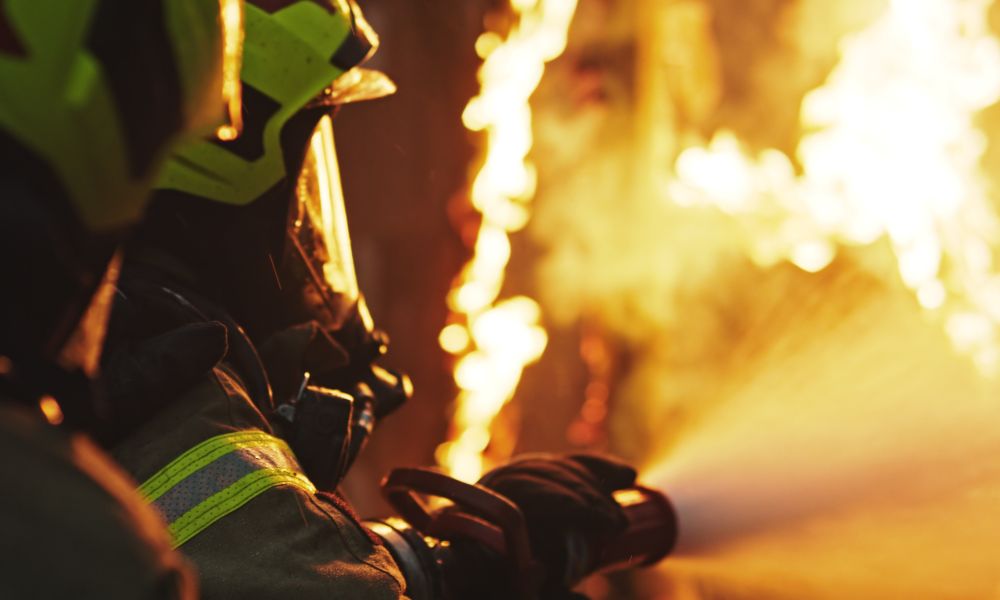
Rock beats scissors, paper covers rock, scissors cuts paper, and water puts out fire. But how does water do that? The chemical process is simple, but it’s worth understanding why we use water to douse fires. It’s our chief ally in the battle against wildfires as acres of trees, underbrush, and other organic materials burn. What exactly makes water such a great firefighting agent?
Water, Water, Everywhere…
We live on a planet covered with water. We ourselves are mostly made of the stuff, and we can’t live without it for more than a few days. Billions of years ago, Earth was likely pummeled with rocks from outer space bearing frozen particles of water that slowly accumulated and formed the oceans. The atmosphere formed, trapped these particles, and began the process by which the planet transforms water from solid to liquid to gas, purifying the supply and hydrating every living thing. Fortunately, there’s a lot left over for firefighting, though we should never take it for granted. All the water on Earth is all the water we’ll ever have.
Like Fire and Water
Fortunately, for now, we have a lot of water on Earth. Composed of two atoms of hydrogen and one of oxygen, water (chemical name dihydrogen oxide) is a wondrous but bland element. It has no flavor, color, smell, or taste. Yet, we drink it, bathe in it, cook with it, water our crops with it, and use it to put out fires. How does that last one work?
Fire involves chemistry, as well. Specifically, a chemical reaction. Fire is a visible manifestation of a chemical reaction known as combustion. The flames are made of water vapor, oxygen, nitrogen, and carbon dioxide. The heat can rise high enough to create a state of matter called plasma. The color of the flames can depend on the chemical composition of the fuel. Also, despite the drawings we made as kids, fire is rarely sections of red, orange, and yellow.
Water You Doing? Putting Out Fires!
Let’s answer our question: What exactly makes water such a great firefighting agent? When H2O meets flammable gas, it cools. The more water you pour on a fire, the faster the cooling process, lowering it to the temperature at which ignition occurs. The fire doesn’t go down without a fight, however. The water is converted into steam by the raging heat, but this also works against the fire. As water vapor rises, the oxygen feeding the flames becomes depleted. In a manner of speaking, water “drowns” and “smothers” fire.
Hold Your Water!
Did you know you can’t use water to put out certain fires? Don’t throw water on electrical fires; otherwise, you risk electrocution via conduction. Also, you can’t extinguish flammable liquids like gas, oil, and certain chemicals with water. The water might cause the fire to spread. Evaluate the type of fire you’re dealing with before dousing it with water from a firefighting storage tank or a fire hydrant.
